Search
Search Results

Article
Legions of the Rhine Frontier
After Julius Caesar’s (100-44 BCE) conquest of Gaul, Roman legions pushed the borders of the Roman Empire’s frontier to the banks of the Rhine River. Augustus (r. 27 BCE - 14 CE) divided the newly acquired region into three provinces: Gallia...
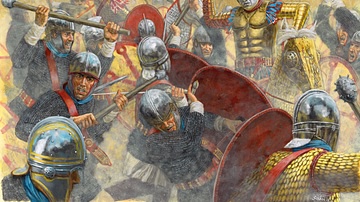
Article
Legions of Late Antiquity
The Roman army underwent dramatic changes in Late Antiquity. Civil war and external conflicts led to the creation of new legions while existing legions were either split or disbanded. Although there was an increase in the number of legions...
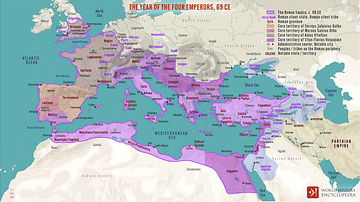
Article
The Year of the Four Emperors & the Demise of Four Roman Legions
During the Year of the Four Emperors (69 CE), the fight between Vitellius and Vespasian would ultimately bring about the demise of four legions, the XV Primigenia, I Germanica, IIII Macedonica, and XVI Gallia. All four of these legions had...
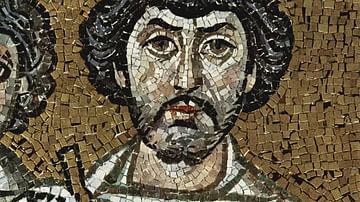
Definition
Belisarius
Flavius Belisarius (l. 505-565 CE) was born in Illyria (the western part of the Balkan Peninsula) to poor parents and rose to become one of the greatest generals, if not the greatest, of the Byzantine Empire. Belisarius is listed among the...
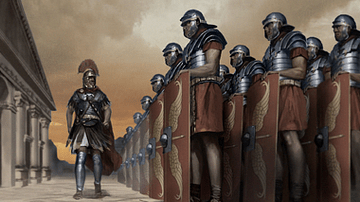
Definition
Legio V Alaudae
Legio V Alaudae, referenced in early accounts only as the "Fifth", was one of the many legions of the Roman army that helped Julius Caesar (100-44 BCE) to achieve success as a military commander in Gaul, Spain, and Africa. Later stationed...
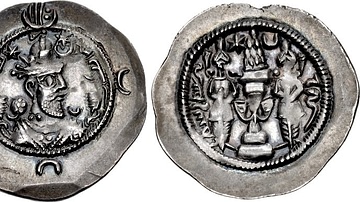
Definition
Kosrau I
Kosrau I (r. 531-579 CE) was the greatest king of the Sassanian Empire (224-651 CE) in virtually every aspect of his reign. He reformed the military, the Persian government, expanded his territories, engaged in large-scale building projects...
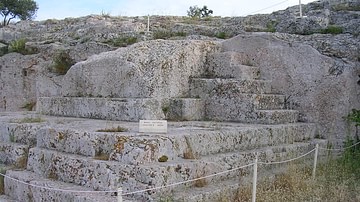
Definition
The Thirty Tyrants
The Thirty Tyrants (οἱ τριάκοντα τύραννοι) is a term first used by Polycrates in a speech praising Thrasybulus (Arist. Rhet. 1401a) to describe the brief 8-month oligarchy which governed Athens after the Peloponnesian War – roughly late-summer...
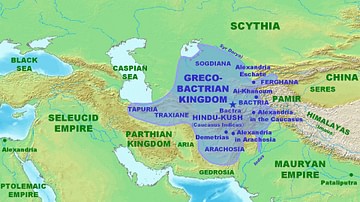
Article
Greco-Bactrian and Indo-Greek Kingdoms in Ancient Texts
The rarity of the appearance of Greco-Bactrian and Indo-Greek kingdoms in ancient literature is one of the reasons why those states are so little-known today. Indo-Greek literature did exist, but none has been found that speaks about the...
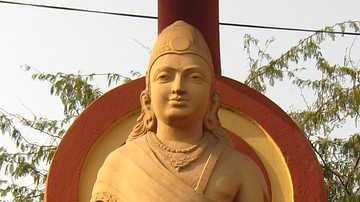
Definition
Chandragupta Maurya
Chandragupta Maurya (c. 321 - c. 297 BCE), known as Sandrakottos (or Sandrokottos) to the Greeks, was the founder of the Maurya Dynasty (4th-2nd century BCE) and is credited with the setting up of the first (nearly) pan-Indian empire. Aided...
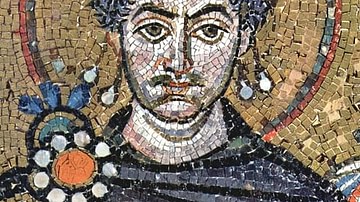
Definition
Justinian I
Justinian I reigned as emperor of the Byzantine Empire from 527 to 565 CE. Born around 482 CE in Tauresium, a village in Illyria, his uncle Emperor Justin I was an imperial bodyguard who reached the throne on the death of Anastasius in 518...